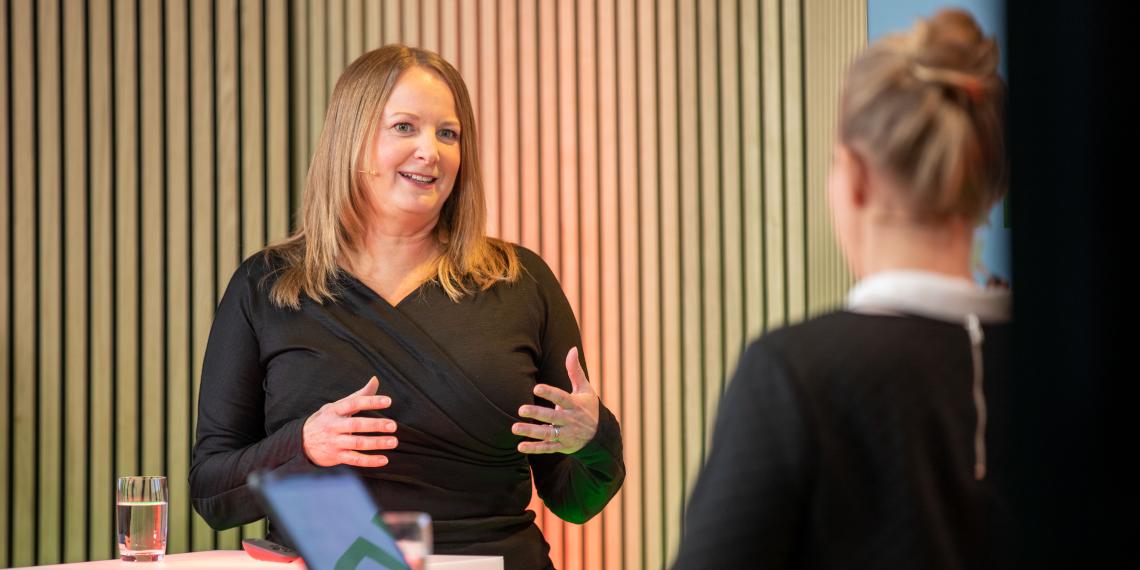Let's talk about attraction
People no longer apply to companies. Those times are over. Nowadays it’s companies that seek to attract people. Anyone wanting to succeed in the fiercely competitive labour market needs to understand this. Companies therefore need to step up their efforts: a harmonious triad of strategy, culture and purpose generates the necessary power of attraction. New recruiting measures can then highlight what is unique about the respective company – but they cannot ever themselves be the unique feature.

The shortage of skilled workers is here and it poses a serious challenge. The employers' association representing German insurers only recently confirmed this in a survey: virtually all companies in our industry anticipate being unable to fill vacant positions over the next three to five years. Some years ago we were talking first and foremost about the difficulty of recruiting IT workers. These days, we are seeing a decline in applications across significantly more job profiles. Right now, there is a considerable need in the areas of IT, mathematics, law and underwriting, among others. In the first place, we must ensure that we are able to retain our own members of staff and, potentially, continue to develop them for new job profiles. On the other hand, we must succeed in attracting new employees to our company.
Thinking of strategy, culture and purpose as a triad
Companies therefore need to step up their efforts: the scale of the challenge necessitates a holistic approach. With a couple of corporate benefits here and a bit of home office working there, would-be employers will not get very far. Such things are readily interchangeable. We are talking about fundamentals: a living organisation with the power to attract, which is fuelled by a clear and inspiring strategy, an attractive culture and work that is given meaning through a purpose deeply anchored in the company. Appropriate recruiting measures can be derived from this triad that highlight what is unique about the respective company – but they cannot ever themselves be the unique feature.
Money alone does not make us attractive
What still weighs heavily on our industry is that many do not find us particularly attractive. Now, as in the past, we suffer from a dusty image. And that is very much our own fault: for a long time we have failed to communicate how varied and fascinating the work at an insurer can be. After all, we are the "house of 100 professions". What is more, as an insurer we have long defined attractiveness purely in terms of money and stability. Both continue to be key factors. Depending on the target group, however, they have not been make-or-break criteria on their own for quite some time now. Instead, employees additionally expect a meaningful purpose and a highly developed corporate culture.
As insurers, we can even fall back on a purpose that is intrinsic to all of us: after all, our business model is all about providing protection for our customers' risks and thereby opening up opportunities. That makes us part of social and economic progress: part of the future of mobility and energy supply, part of research into medicines and vaccines, part of the transformation of production into Industry 4.0 – and part of much more besides. That makes the jobs with our company really relevant. But this is still far too little known. We must learn to communicate our value added more clearly. An insurer that can also point to an individual purpose enjoys an additional edge. At Talanx we elaborated just such a purpose some years ago with a high level of engagement among our worldwide workforce: Together we take care of the unexpected and foster entrepreneurship.

Culture is a key competitive factor
A major differentiating feature is the corporate culture, for me an absolutely key competitive factor. Time and again we see that our Talanx culture, with its hallmarks of collaboration, engagement, transparency and trust, appeals to people. They want to get involved and have a sense that their contribution counts. They want to feel that what they are able to do and what they are all about has value. Our challenge is to enable people to do exactly this with us. And that is why we also think of the two together: People & Culture, as we recently dubbed our human resources sector. And it goes without saying that people prefer to work in successful companies that are resilient in the face of crises and have a clear and comprehensible strategy.
Tailored solutions for every phase of life
Along with the triad of meaningful purpose, clear strategy and strong corporate culture, however, the very real framework conditions must also fit the bill. Modern workplace design, the possibility of mobile working and flexible working time models on all levels must be tailored to the needs of (potential) members of staff. In this context it is important to consider the entire life cycle. A young father will need general conditions that are very different to those of a baby boomer, who is looking to travel extensively with her husband and pursue her hobbies – and these in turn differ from those of someone who is physically or mentally disabled. We need customised solutions for every phase of life – in order to attract new talent and retain our people over the long term.
Given that the world is changing ever more rapidly and we, in our capacity as an insurer, should ideally know even before our customers how their risks are changing, the question also arises as to who exactly we need. We must ourselves be transparent about the areas in which new employees with what specific expertise will be required in the years ahead. To this end, we must accurately anticipate how roles are changing and which skills will be called for in the near future so as to continue to offer our customers the accustomed high quality of support.
Based on the answers to these questions, we determine our personnel recruitment measures geared to specific target groups. This includes our own work to develop tomorrow's specialists today. We already do a lot of our own training and are further stepping up our efforts, for example by offering two new integrated degree programmes from the coming year onwards: data science and mathematics for actuarial sciences.
Targeted moves to attract top talent
Our newly created "Recruiting Center" plays a pivotal role in attracting outside talent. All activities around recruiting are concentrated here. Part of this team is also dedicated to active sourcing – a success story that we are progressively building on. Talent Acquisition Managers approach candidates in a targeted manner. This is necessary because in some areas talented individuals are generally no longer freely available on the market. Combined with our close collaboration with recruiters and an expansion of employer branding activities, we are receiving considerably more applications from suitable candidates. What is more, we are speeding up the process. From the initial contact through discussions with the specialist unit to a contract offer, we have significantly accelerated the process. That's a calling card that top talents really appreciate about us – because it reveals more about our culture than a few sentences in a job advertisement.
About the author
Caroline Schlienkamp is a member of the Management Board of Talanx AG. As Labour Director and Spokeswoman of the Management Board of HDI AG, she is responsible for the Group's human resources.